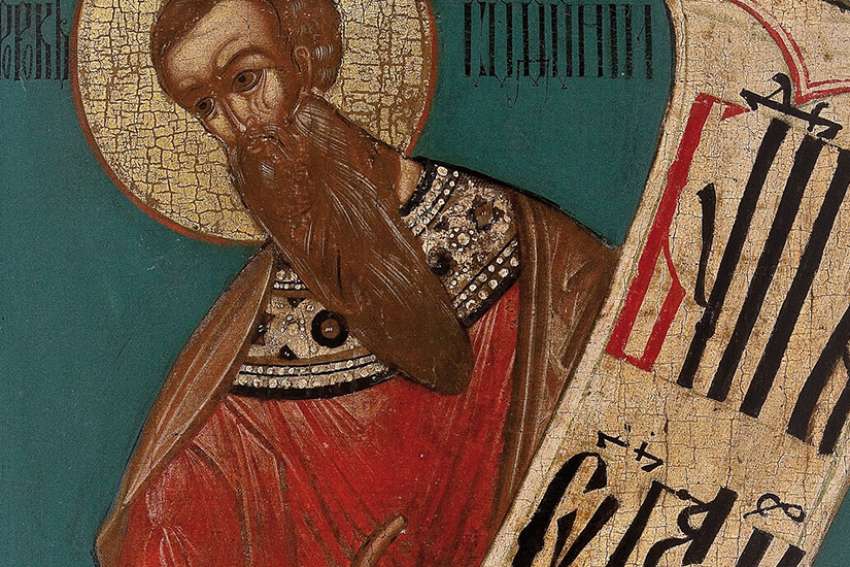Zephaniah had bad news and good news for the Kingdom of Judah. He prophesied in the mid-seventh century B.C. during the reign of king Josiah the reformer. The nation was guilty of backsliding on a huge scale — idolatry, violence, oppression and injustice described its spiritual state. Zephaniah warned of an impending visitation from God — the “day of the Lord” — and it would not be pretty. In standard prophetic fire and brimstone language, he warned of the universal cataclysm that was in store for them. Most would be destroyed.
With that “cheery” prediction, what could possibly be good news? There was good news for some — those decent people that had remained faithful and not forsaken the Lord would be saved. God would dwell in their midst, save them from their enemies, purify their hearts and restore them to peace, happiness and prosperity.
The “faithful remnant” is a constant theme in the Old Testament prophetic writings. The threats of destruction might seem to have little to say to us. We are well aware that humanity faces menacing threats on a number of fronts. They are not God’s doing, but the result of human malice, ignorance and greed. But the prophetic promise should speak directly to us.
There is a continuity throughout history, despite its many difficulties and disasters. God is always in our midst; God is always working with and for us. As the world order collapses around us, God will build the future with those who remain faithful and committed. The decisions we make and the way we decide to live have tremendous consequences for the world and humanity, even though they might not be immediately evident. No individual life marked by goodness and kindness is futile, and every act of goodness or kindness reverberates throughout history. When the Scriptures present us with the choice between the ways of life and death, it is never just for ourselves but for future generations. Let us always choose wisely, even in the smallest things.
Paul’s advice to his community was simple but profound: Rejoice; rejoice always. But what about when we are in pain or facing difficulties? Rejoice especially during these times, for it is a cure for despair and negativity. The knowledge that the Lord is near and that we are loved and known by God should bring comfort and peace. This is best expressed with extraordinary gentleness — not weakness — and this gentleness will be a true counter-witness in our violent age.
John the Baptist stepped into the prophet’s role and proclaimed the approaching day of the Lord and judgment. His fiery apocalyptic preaching clearly rattled many people. They began to ask the obvious question: what should we do? How should we prepare for that day? His answer was disarmingly simple and had nothing to do with self-absorbed acts of penance or mortification. There was nothing spectacular or impossible. Do the right thing; be a just and good person, especially in the way that you treat others, and you will be ready for God. People were to share the basics of life with those who lacked them. Those who had more than enough in the way of food and clothing should share what they had with the needy. Tax collectors were not ordered to give up their livelihoods, but to only collect what they were supposed to, rather than squeezing people for every last cent. Soldiers were not commanded to desert their posts or lay down their weapons, but to behave justly towards the civilian populace. Extortion, threats and violence were definitely out.
As he baptized the people, they wondered if he might be the promised Messiah. He merely alluded to one coming after him who was far more powerful and worthy of the title. This individual — Jesus — would baptize them with far more than water. He would fill them with the fire of the Holy Spirit. These would be the ones with whom God would build the future — the new age — and those who were not on board had no place in it.
Once again, God built the future with the faith and commitment of a few. John’s exhortation is as urgent today as it was then. Let us commit ourselves each day to John’s exhortations to honesty, justice, compassion and generosity. We will be a vital part of God’s future.
Support The Catholic Register
Unlike many other news websites, The Catholic Register has never charged readers for access to the news and information on our site. We want to keep our award-winning journalism as widely available as possible. But we need your help.
For more than 125 years, The Register has been a trusted source of faith based journalism. By making even a small donation you help ensure our future as an important voice in the Catholic Church. If you support the mission of Catholic journalism, please donate today. Thank you.


